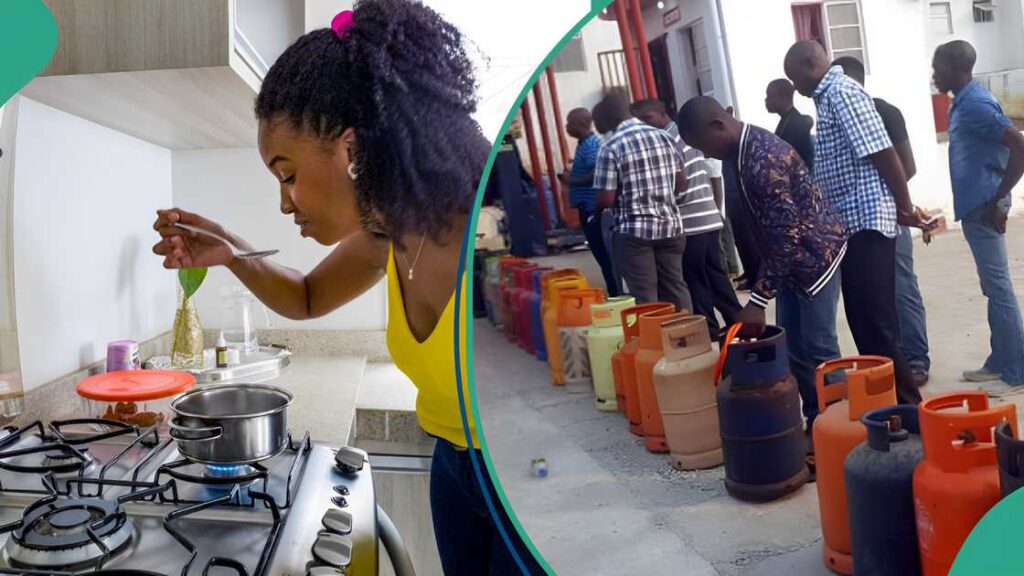Cooking Gas Crisis Hits South-West Nigeria: Prices Surge to N32,000 per 10kg
A severe cooking gas shortage has struck Nigeria’s South-West region, causing prices to spike dramatically and leaving residents struggling to secure liquefied petroleum gas (LPG) supplies. The crisis has pushed prices to unprecedented levels, with consumers now paying up to N3,200 per kilogram, nearly triple the previous rate of N1,100.
The shortage, primarily affecting Lagos, Ibadan, and Abeokuta, has resulted in long queues at gas stations and widespread closure of retail outlets. A standard 10kg cylinder now costs N32,000 to refill, placing significant strain on household budgets.
Three major factors have contributed to this supply disruption:
1. Supply Chain Disruptions
The National President of NALPGAM, Olatunbosun Oladapo, confirmed that the scarcity is concentrated in the South-West, while other regions maintain stable supply. The shortage stems from maintenance work at the Dangote Refinery, combined with subsequent delays in NLNG vessel deliveries due to industrial action.
2. Market Competition Dynamics
Private importers have largely withdrawn from the market, struggling to compete with Dangote Refinery’s competitive pricing structure. Prior to the crisis, Dangote sold LPG at N810 per kilogram, while other depots like Ardova and Nipco priced their product between N910 and N920 per kg. According to Petroleumprice.ng CEO Olatide Jeremiah, the three-week pause in Dangote’s operations created a market vacuum that importers were reluctant to fill.
3. PENGASSAN Strike Impact
The Petroleum and Natural Gas Senior Staff Association of Nigeria’s industrial action coincided with the refinery maintenance period, further constraining supply chains by delaying cargo movements and terminal operations.
The situation appears set to improve as Dangote Refinery has resumed operations and begun issuing pro forma invoices to off-takers. Industry experts predict the supply backlog will take two to three days to clear, potentially bringing relief to affected consumers.
The National Bureau of Statistics has noted that cooking gas prices have reached record highs nationwide, though the current crisis has particularly impacted the South-West region. As Nigeria’s domestic LPG market grows increasingly dependent on local refineries, even brief disruptions can trigger significant market instability.


